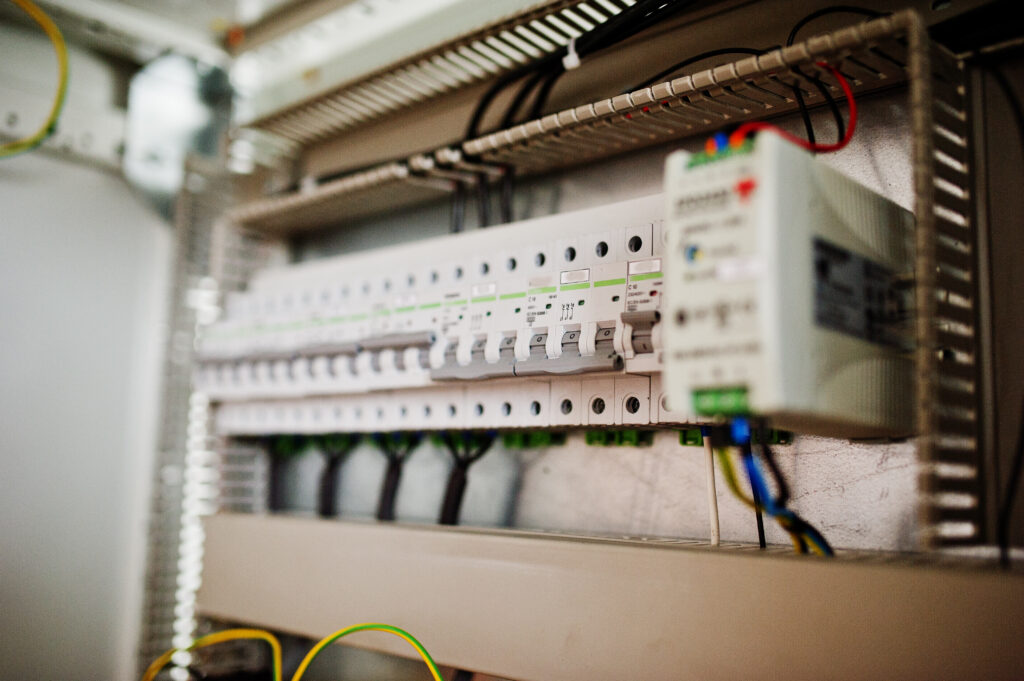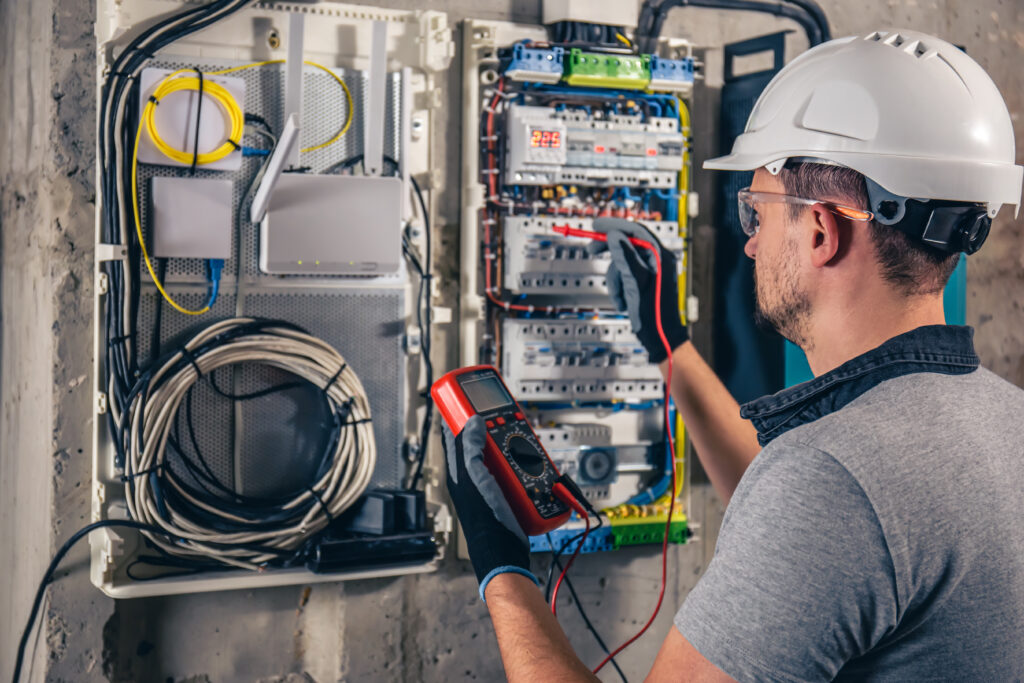An electrical panel, also known as a breaker panel or distribution board, is a metal box that houses circuit breakers or fuses. It distributes electricity from the main power supply to different circuits throughout a building, protecting the electrical system by shutting off power in case of overloads or short circuits.

A Simple Guide to Electrical Panels
Introduction
Our everyday lives depend on electricity to run our homes, workplaces, schools, and industries. But if not used properly, electricity can also be dangerous. For this reason, electrical panels are essential parts of any electrical system.
Electrical power is distributed throughout your house or building by electrical panels, which act as centralised distribution points by dividing it into distinct circuits. The fundamentals of electrical panels, their types, and some important factors to consider while choosing or maintaining them will all be covered in this blog post.

About Electrical panels breaker
Electrical panels are often found in a central place, such as the basement or utility room. They act as the primary switchboard, transmitting electricity through circuits that service various areas of your home or building.
An electrical panel is a metal box with numerous switches, fuses, and circuit breakers to control the flow of electrical power. When too much current flows across a circuit, the circuit breaker trips, interrupting the flow of electricity to that circuit.
Types of Electrical panels for home
There are several types of electrical panels, each designed for specific needs:
- Main Breaker Panels: These panels have a main switch that controls the power flow to all circuits. Common in residential buildings.
- Main Lug Panels: These don’t have a main breaker but rely on a breaker upstream to control power. Often used as subpanels.
- Subpanels: Smaller panels connected to the main panel to distribute power to specific areas or equipment.
- Load Centers: Typically used in residential settings, they combine breakers in a compact form.
- Switchboards: Used in commercial and industrial applications, handling large power loads.
Factors to Consider While Buying an Electrical Panel
When considering an electrical panel, you should keep in mind the following:
- Capacity: Electrical panels come in different sizes, and their capacity is measured in amps.
- Safety: Electrical panels should be installed and maintained by licensed electricians to avoid the risk of electrical shock or fire hazards.
- Accessibility: Electrical panels should be easily accessible and not obstructed by furniture or other objects to allow easy maintenance and troubleshooting.
Electrical Panel Repair and Replacement
As time goes by, electrical panels can wear out or become unsafe due to age, corrosion, or overloads. Signs you may need repair or replacement include:

- Frequent breaker trips
- Burning smells or scorch marks
- Flickering lights
- Rust or water damage
- Buzzing or humming noises
Regular inspections by a licensed electrician can help catch issues early. Upgrading your panel can improve safety, increase capacity, and support modern electrical demands.
Conclusion
Electrical panels are essential for your building’s electrical health and safety. Understanding their function, types, and how to choose the best one allows you to make informed judgments. Whether installing a new panel or maintaining an existing one, always prioritize quality and professionalism to ensure that your power flows safely.
As an ABB value partner, we offer electrical panel solutions and maintenance services. Contact us today, and we will help you find the best solution for your needs.
FAQs
+
-
What types of electrical panels are there?
There are main breaker panels, main lug panels, subpanels, load centers, and switchboards, each suited for different power needs.
+
-
When should I repair or replace my electrical panel?
Repair or replacement is needed if you notice frequent breaker trips, burning smells, flickering lights, rust, or buzzing sounds.
+
-
What is the electrical panel?
+
-
What are the four types of electrical panels?
The four main types of electrical panels are the main breaker panel, which controls power to the entire building; the main lug panel, which receives power from a separate disconnect; the subpanel, used to distribute power to specific areas; and the transfer switch, which allows safe switching between utility and backup power sources like generators.


 العربية
العربية

